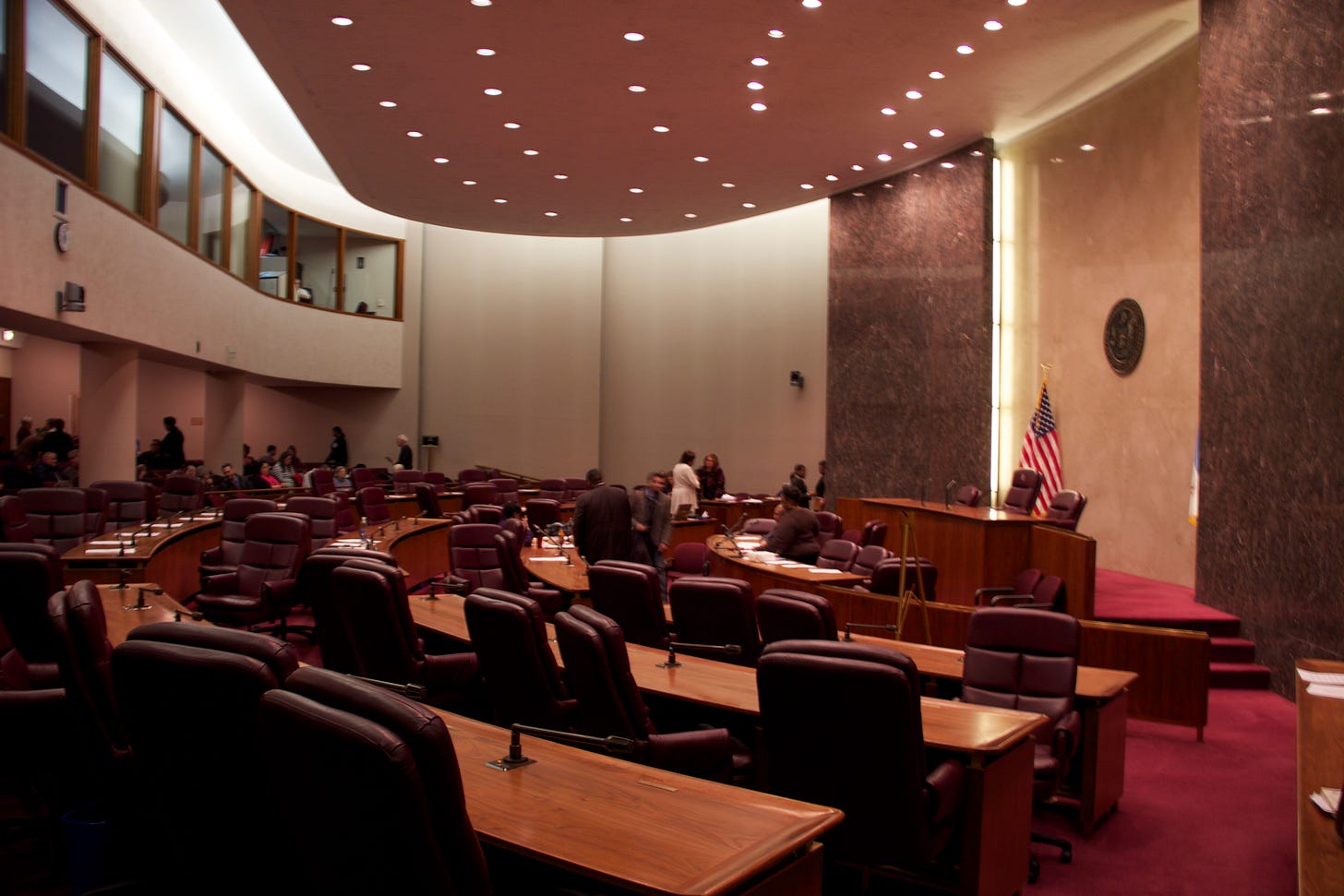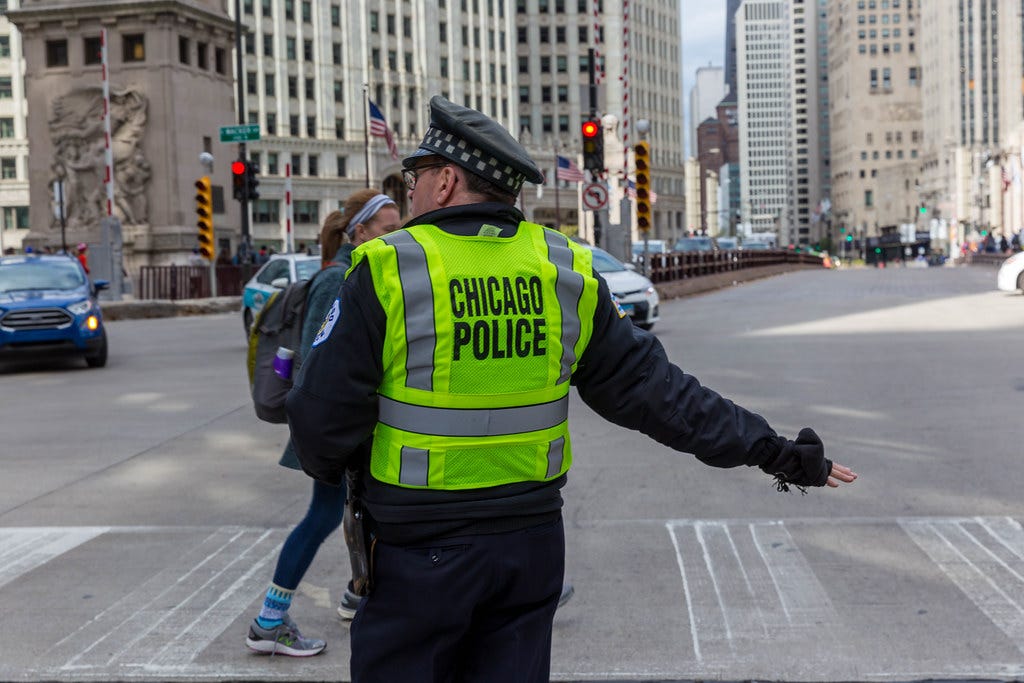A hot time in the old town — South and West Sides brace for a brutal summer
Chicago's underserved communities will bear the brunt of our changing climate. We can do more to help.
This week, the Chicago Tribune released a report detailing their study of Chicago’s heat map, a chronicle of the ways in which climate change has hit the city’s underserved neighborhoods particularly hard.
With fewer tree-lined streets and parks, and little extra money for air conditioning, Black and Latino neighborhoods in the South and West Sides of Chicago have taken the brunt of this deadly trend toward higher temperatures.
The Tribune heat map is an independent endeavor. While many cities across the country have paired with the National Oceanic and Atmospheric Administration to study this issue in depth since NOAA launched its study in 2017, Chicago has never applied to join the effort.
According to the National Weather Service, heat-related deaths account for a higher number of weather-related fatalities than hurricanes, tornadoes and floods, even though the latter causes are understandably more dramatic and therefore get more attention.
In American politics, the people most associated with resisting climate change mitigation efforts are also the people most associated with Christian evangelicalism. I find this unfortunate.
The Bible is clear that Earth and all who dwell in it belong to the Lord. In Genesis 2:15, we see that God put Adam in the Garden of Eden to care for it.
So, how do we do this? Certainly, an issue of global scale requires a global solution, which involves government action. We must advocate for robust climate justice that addresses the concerns of those most impacted by the effects of global climate change, those in poor and underserved communities, who also happen to be those least able to weather the changes.
Do you have ideas for future Civic Update stories or want to contribute a story yourself? Email our editor by clicking the button below!
But in the meantime, as we continue to do the hard work of ensuring that our government takes the threat of climate catastrophe seriously, we can’t forget to do the local work that can have an immediate impact on our communities. Thankfully, this work tends to come with a lot less red tape preventing action.
Just this week, local environmental activists with the group Openlands pitched in by planting more than two dozen trees in the Little Village neighborhood as part of a citywide effort to add tree canopy in underserved communities.
According to census records, Chicago's tree canopy has shrunk from 19 percent to 16 percent in the last decade. Some neighborhoods in the South and West Sides have less than 10 percent coverage. On the other hand, the North Side neighborhood Forest Glen has a whopping 46 percent coverage.
Reversing this trend isn’t a panacea, but it is a start.
We don’t have another home, and the only one we’ve got is in serious trouble. That means we’re in serious trouble, and we need to do all we can to protect the human lives dependent on a habitable environment.
Creation care is a matter of life and death. If we care about the sanctity of human life, and we must, then we ought to treat it as such.
If you’d like to see more trees in your Chicago neighborhood, visit OpenLands and get involved.
The Round Up
Here are the stories that caught our eyes this week and what they mean for the weeks ahead.
Johnson wins first test of City Council muscle
Mayor Brandon Johnson on Wednesday scored a major first win in the City Council, moving the body in his progressive direction.
Presiding over the council’s first meeting since he was sworn in, Johnson easily won a vote on a compromise he struck, slashing the number of committees from 28 to 20 and replacing Finance Committee Chairman Scott Waguespack with Ald. Pat Dowell. Dowell’s endorsement of Johnson marked a tipping point in his victorious mayoral race.
Alderpeople push to expand community policing model citywide
Members of the City Council and Chicago activists have called on Mayor Brandon Johnson to expand a community policing program.
The group delivered a letter — signed by about 300 community members and backed by 22nd Ward Ald. Michael Rodriguez, 29th Ward Ald. Chris Taliaferro and 5th Ward Ald. Desmon Yancy — to Johnson’s office Tuesday. The letter request he extend the Chicago Neighborhood Policing Initiative from a pilot to a citywide initiative.
CNPI began in 2019 and has expanded to 10 more police districts on the South and West sides. Even as it expanded, it has remained a pilot program.
Officers are trained to meet face to face with residents, build community ties and share their contact info so neighbors can reach out about non-emergency issues instead of calling 9-1-1.
Housing plan for migrants proposed by group of Latino City Council members
In the midst of Chicago’s continuing migrant crisis, a group of City Council members on Wednesday put forward a proposed solution.
The group of several Latino alderpersons want a ward-by-ward search for unused buildings that could be turned into temporary shelters.
Pending community approval of the sites, social workers could connect asylum-seekers and other unhoused people with transitional homes and then permanent, affordable housing.
Newsclips
Chicago promised students would do better after closing 50 schools. That didn’t happen.
With sometimes self-deprecating humor, Johnson presides over first City Council meeting
CTU leader touts ‘historic reset’ in labor relations between union and Chicago Public Schools
Chicago Mayor Brandon Johnson dramatically reduces Lori Lightfoot's security detail
Chicago’s top cop ends training agreement with Texas firm with ties to ex-police superintendent
At City Hall, Jewish leaders call attention to rise in antisemitism
Suburban mom with ALS aims to raise awareness for other younger patients
Here’s some steps Mayor Brandon Johnson can take to fix public transit
Record-setting rate hike sought by ComEd is more than $914M too high, utility watchdog says







